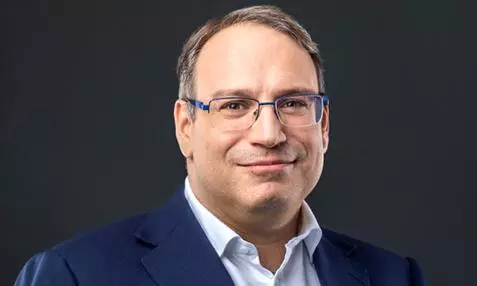GCCs will Grow in Hyderabad, India: EPAM President of EU and APAC

Balazs Fejes, president of EU and APAC markets at EPAM
India is poised to see a substantial number of new global capability centres (GCCs) coming up in two years. This will be in addition to the scale-up of existing GCCs. The factors that will drive this growth include global leadership from India, evolution of service offerings, scaling up of infrastructure and innovation ecosystems and acceleration of advanced technologies like AI. Currently, Hyderabad represents its largest location in India with more than 3,000 people. It has plans to take it more than 4,000 by 2025, tells Balazs Fejes, president of EU and APAC markets at EPAM, in an interaction with B Krishna Mohan
Here are the excerpts
EPAM work
EPAM India works with more than 15 GCCs in Hyderabad and over 50 GCCs across the country. These GCC clients range across verticals like hitech, BFSI, healthCare and life sciences, FMCG, retail, travel, telecom, media and others. EPAM India provides advanced engineering services to these GCCs including user experience design, product and platform development, cloud modernisation, data and analytics, machine learning and quality engineering.
EPAM footprint and plans
We have development centres in India, China, in central Eastern Europe and in Latin America. We are in Hyderabad now for eight years and our journey here began with an acquisition. In Hyderabad, today there are more than 3,000 people. It is a fast-growing location of ours serving major clients. Hyderabad represents our largest location now. We have 1,300 people in Pune, 400 in Chennai, 1,100 in Bengaluru and 1,000 in Gurgaon. We are going to clearly grow in all locations. Our plans will be based on where our clients want our engineers to be present and where we are able to find the required talent. I can say that it's going to be definitely more than 4,000 people in Hyderabad by 2025, but it could be more. Today, EPAM has more than 7,000 people in the country. We expect that we will cross the threshold of 10,000 employees in India by 2025.
How is Hyderabad positioned to attract GCCs?
For us, Hyderabad was always the base. We acquired an organisation and built upon it. Clearly, we love the infrastructure, we love the facilities, which are market leading. GCC is a new name for something which used to be called captive centres. But I think that the phenomenon which we all are aware of right now is that it is not about just a location but about business stakeholders, business functions, and budgets actually moving to India. Business stakeholders are no longer potentially located just in the US or in Western Europe. More and more budget decision making stakeholders are going to be located in the GCCs. Why is this happening? Clearly, there is a cost pressure. Also, there is something to be said about the impact and influence of the Indian diaspora on making these decisions.
Work trends
EPAM is operating today in a hybrid setup. We have 2,000 seats minimum in Hyderabad today. We are no longer reviewing the office space the way we used to do before Covid. Today, office space or real estate requirements are driven by collaboration needs. We are trying to redesign and recreate our office space as a destination location. This is not just in India but across the globe. We continue to support our employees with a hybrid office setup.
Views on remote working and return to office
Clearly, a few clients of ours and even ourselves have considered return to office policies. We do have some clients who are interested in bringing back all their people to the office and we are working on this. At the same time, I think the world has changed. Employees moved to their own or newer locations and have structured their lives a little bit differently. If the talent refuses to come back to offices, we need to respect that. We are asking our employees to have core days in the office and create a hybrid solution. Mandating 100% back to office setup may result in probably losing key talents in some cases. We are adjusting and selecting people who have no objection to being 100% back to the office.
Campus recruitment
Would we go to the campuses for recruitment? Yes, clearly this is something which we do. Today, 20% of our hires are from campuses. The rest is lateral hires. EPAM's business model focuses on complex solution delivery, on change, transform and build. These require higher talents, more skilled workforce. We have engagements and training programmes. Our goal is to get a higher number of people from campuses. But right now it's a work in progress.
( Source : Deccan Chronicle )
Next Story

